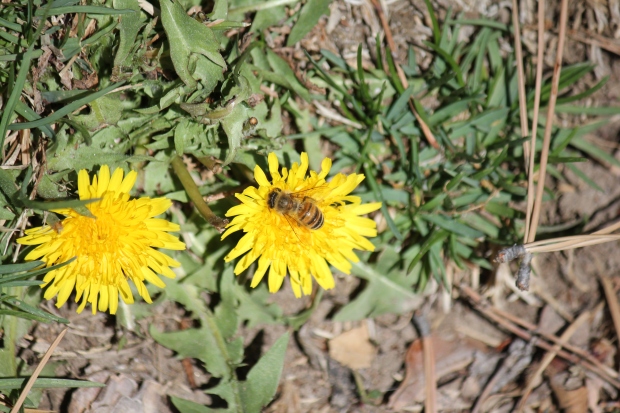Natural Weed and Pest Control
Alternatives to Poisons
by Jessica of TheBeesWaggle.com

Weeds do have value to pollinators, as most produce blooms that carry highly nutritious contents for pollinators. However, they can be overwhelming in their growing power, and we need ways to control them without poisoning the soil and the things that feed on them. I would like to begin by saying I pull each and every weed that I do not want growing in specific places. I never use chemicals, not even vinegar and salt. I would like to urge you to do the same, but I am providing you with some choices that are nontoxic.
- Boiling water. Pouring boiling water over weeds cooks them, and kills them. Water is only water, so it’s okay for it to get into the soil and groundwater.
- Spray straight White Vinegar on the leaves of weeds being careful not to go overboard. Too much vinegar in the soil isn’t good for the pH of the soil so it will affect the balance of the existing underground ecosystem if it is applied excessively.
- Spray a mixture of salt and vinegar…and then maybe pull them, roast them, and eat them? Just a joke. The recipe is 1 cup of salt into 1 gallon of vinegar
Wasps, hornets, and yellow jackets are the other most popular topic of seasonal pests. I don’t consider them much of a pest because they eat other insects, which makes them a very important part of the food chain. So, instead of finding ways to kill them, I find ways to coexist. They do not like peppermint oil, lavender oil, or eucalyptus oil. So, the best prevention is to spray a mixture of these oils with water around the areas you’d rather them not set up shop. The recipe is as follows: 1 tsp of peppermint oil; 1/2 tsp lavender oil; 1/2 tsp eucalyptus oil into 2 cups of water. Use a good spray bottle to apply this mixture anywhere you do not want them present. I suggest daily application, and the smell is pleasant, at least I think so.

Remember that every living thing has a purpose, so frugally controlling them is in our best interest! I hope you all are having a wonderful summer so far! Thank you for being part of this very important movement to save our bees!
Jessica
Here are a couple of links to steps to control pests using non-chemical controls and least toxic methods, and a link to a great video from BeyondPesticides.org website.
Manage Safe
Organic Land Managment Practical Tools and Techniques


Leave a Reply
Want to join the discussion?Feel free to contribute!